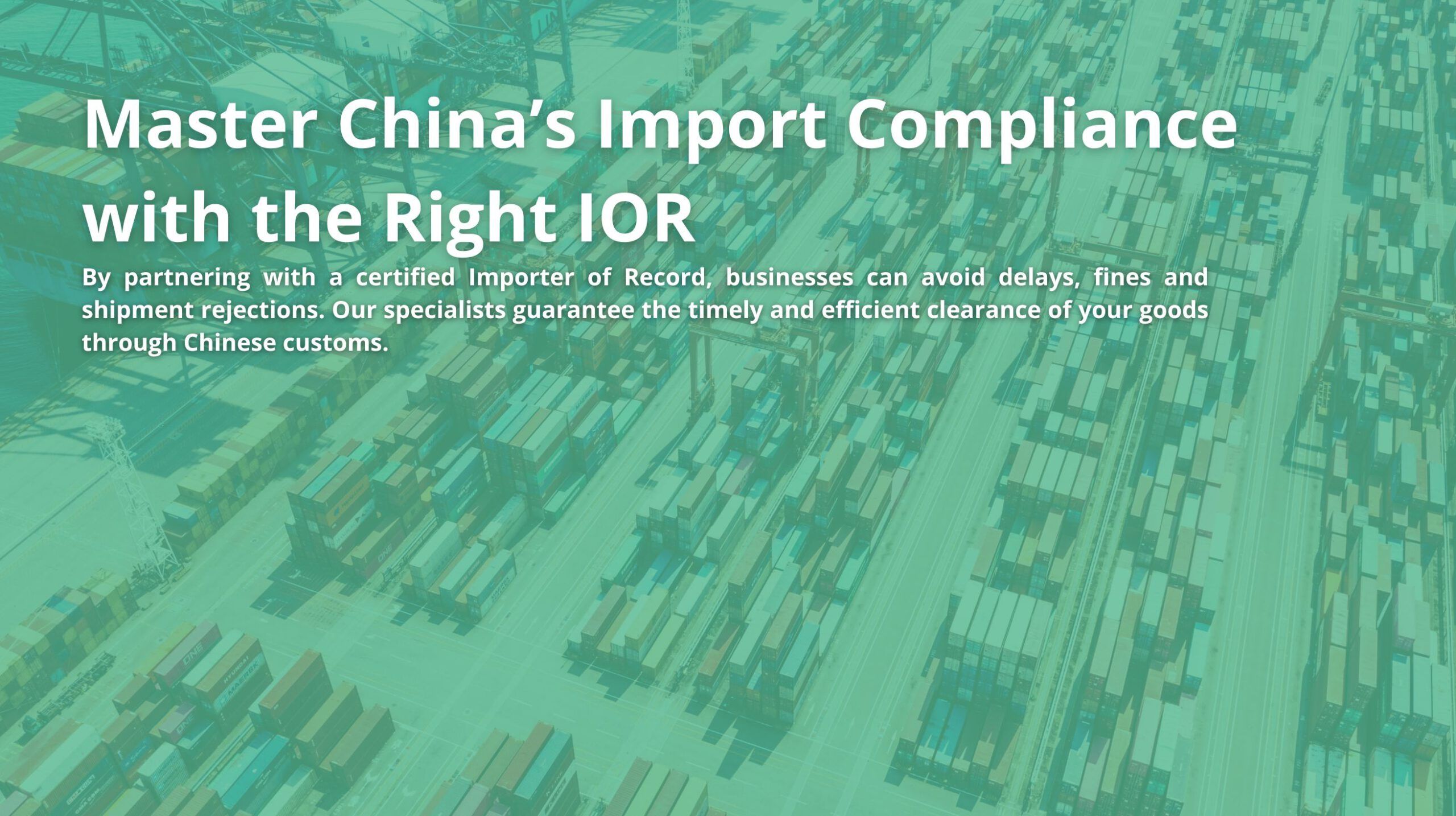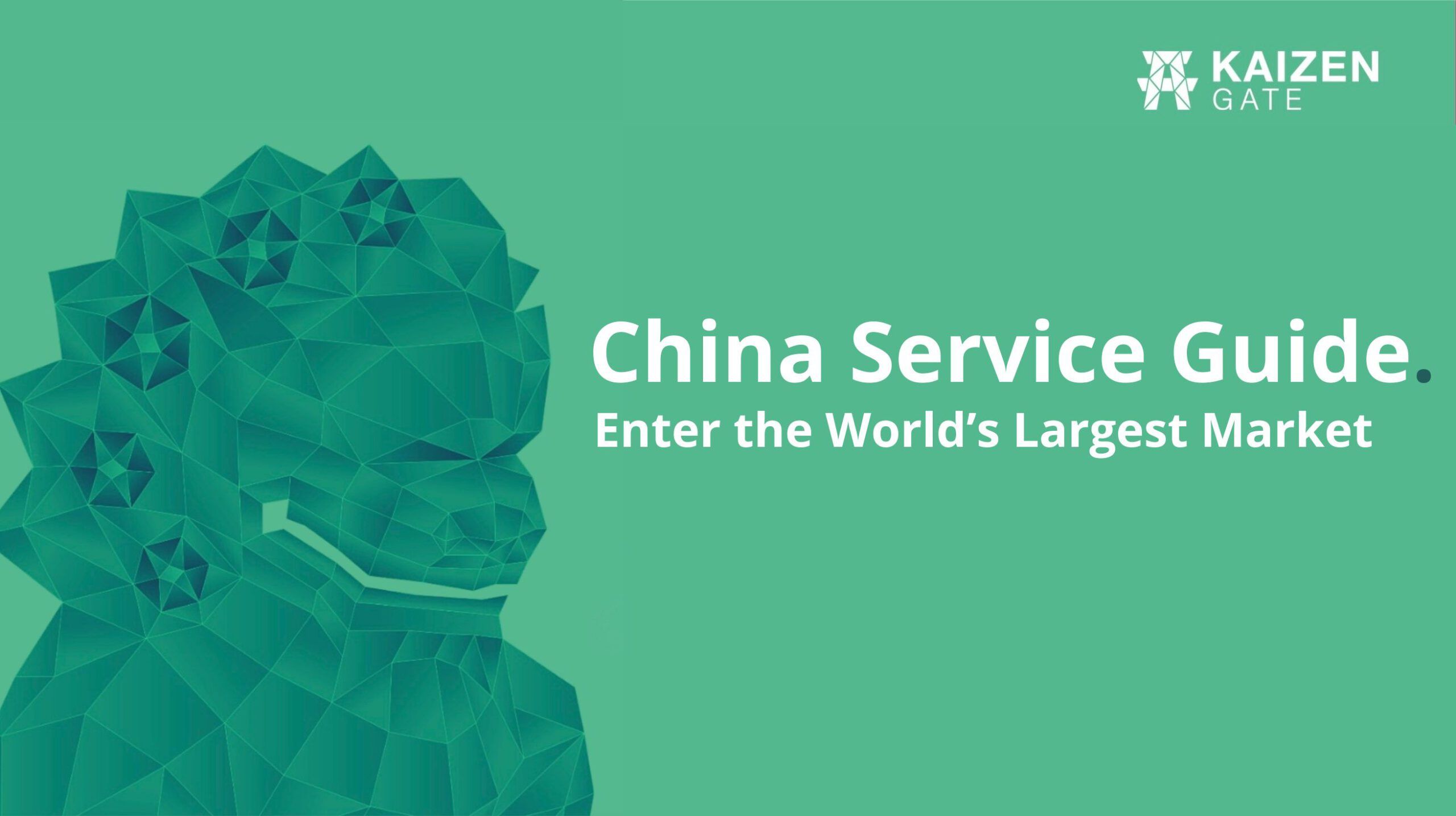For foreign companies seeking to enter the Chinese market, understanding the concept and strategic role of the Importer of Record (IOR) is crucial. China represents massive commercial opportunities, but it also has rigorous customs regulations, which can be a major barrier for unprepared businesses.
This article explains the IOR’s essential role in China, clarifies key regulatory requirements, identifies common pitfalls, and offers strategic guidance for international companies planning to sell in China.
What is an Importer of Record (IOR)?
An Importer of Record is the entity legally responsible for importing goods into a country, ensuring all goods meet local regulations, duties and taxes are paid, and customs requirements are fulfilled. In China, this role takes on special significance because foreign companies without a local entity cannot directly import goods. Chinese law mandates that the IOR must be a locally registered company with import/export license.
Consequently, companies seeking to export products into China must designate a qualified local partner or establish their own local presence to fulfill the IOR role. This requirement is non-negotiable, goods cannot enter China’s borders without it.
Why is an IOR Critical for China Market Entry?
The strategic importance of the IOR in China extends beyond regulatory compliance. Your chosen IOR impacts every aspect of your entry strategy, from customs clearance speed to managing potential regulatory risks. Key reasons why the IOR is critical include:
- Compliance with Chinese Customs Regulations: China’s General Administration of Customs (GACC) rigorously enforces compliance. Missteps in customs declarations, licensing, or classification of goods can lead to heavy fines, shipment seizures, or bans.
- Smooth Market Access: The right IOR ensures efficient customs clearance, faster market access, and minimized delays. Conversely, inexperienced IOR partners can cause costly delays and reputational harm.
- Tax and Duty Management: An effective IOR handles complexities around import duties, VAT (typically 13%), and other fees, protecting your margins and ensuring accurate cost forecasting.
How the IOR Operates in China: Regulatory Framework and Responsibilities
China’s legal framework clearly defines an IOR’s responsibilities, including:
Customs Declarations
Filing accurate declarations with Chinese customs through certified brokers, managing documents such as commercial invoices, packing lists, and bills of lading.
Licenses and Certifications
Securing necessary permits, such as CCC (China Compulsory Certification) for electronics or CFDA approvals for cosmetics and health products.
Duties and Taxes
Paying import tariffs, VAT, and any applicable consumption taxes promptly upon arrival of goods.
Compliance Checks
Ensuring products comply with strict Chinese standards regarding safety, labeling, packaging, and quality.
Record-Keeping
Maintaining meticulous records for customs audits, required for at least three years after import.
These comprehensive responsibilities underscore why selecting a knowledgeable and reliable IOR partner is paramount for smooth operations in China.
Differences Between IOR in China and Other Major Markets
China’s approach to import compliance and IOR requirements significantly differs from Western markets like the U.S. and EU:
- Local Presence Requirement: Unlike China, the U.S. permits foreign companies to import without a local entity through customs bonds, while the EU allows indirect customs representatives for non-resident importers.
- VAT Payments: China mandates upfront VAT payment at importation, whereas the EU allows VAT deferral or reclaim for registered businesses. The U.S. does not levy VAT, simplifying the import cost structure.
Understanding these distinctions helps foreign businesses adopt the right strategic mindset for entering China, emphasizing preparedness and proactive compliance.
Common Business Scenarios Requiring an IOR in China
Companies usually encounter the IOR requirement in scenarios such as:
Direct B2B Sales or Distribution Partnerships
Foreign businesses frequently rely on Chinese distributors who purchase products, serve as IOR, and handle compliance. While this simplifies initial market entry, companies sacrifice some control over branding and market positioning.
Regular E-Commerce
Platforms like Tmall or JD.com allow foreign brands to sell directly to Chinese consumers online but they must have an IOR or register their own entity if they want to open a local flagship (official store).
Bonded Warehousing and Logistics
Companies use bonded warehouses within Chinese Free Trade Zones for flexible distribution. Specialized logistics providers or professional IOR agents handle customs clearance when products are sold or transferred domestically.
Risks of Entering China Without a Proper IOR Strategy
Entering the Chinese market without a clearly defined IOR strategy can expose companies to severe risks, including:
- Customs Rejection: Goods lacking proper import declarations or compliant documentation are commonly rejected, causing financial losses.
- Compliance Penalties: Underestimating China’s stringent regulations can lead to heavy fines, shipment seizures, or even criminal liabilities for serious violations.
- Operational Delays: Goods stuck at customs due to unclear IOR arrangements result in delays, additional storage costs, and lost market opportunities.
- Reputational Harm: Compliance violations damage trust with consumers and regulators, making future market penetration increasingly challenging.
A proactive IOR strategy effectively mitigates these risks, paving the way for sustainable growth.

Typical Mistakes Companies Make with Import Compliance
Many foreign businesses unknowingly make costly mistakes regarding China import compliance, such as:
- Inadequate Regulatory Research: Assuming compliance rules are similar to other markets, leading to customs rejections.
- Choosing Inexperienced IOR Partners: Relying on inexperienced import agents or logistics providers without proper vetting, resulting in compliance issues.
- Incorrect Documentation: Errors in invoices, packing lists, labeling, or HS classifications that lead to costly delays and customs penalties.
- Ignoring Labeling Requirements: Overlooking mandatory Chinese labels or product certifications required before customs clearance.
Avoiding these errors demands diligence, local expertise, and comprehensive preparation.
Strategic Best Practices for China Market Entry via IOR
Companies that successfully enter and thrive in China adopt strategic best practices:
-
Early IOR Integration into Market Planning
Incorporate regulatory compliance and IOR considerations into initial China entry strategies. Ensure clarity on who handles import responsibilities and regulatory compliance early in the planning phase. -
Selecting a Qualified IOR Partner
Choosing a capable local IOR partner is vital. Options include local distributors, logistics providers, or specialized IOR service companies. Specialized IOR providers often offer greater transparency and control, making them suitable for foreign brands prioritizing market understanding and oversight of operations. -
Conducting Pre-Import Compliance Checks
Perform comprehensive compliance audits before shipping goods. Ensure all required licenses, certifications, and product-specific standards are fully satisfied, minimizing customs issues upon entry. -
Ongoing Regulatory Monitoring
Regularly monitor regulatory updates from official Chinese authorities (GACC, MOFCOM). Stay informed about changes in customs procedures, certification requirements, and import tariffs to proactively adapt your compliance strategy. -
Financial Preparedness for Duties and Taxes
Clearly plan responsibilities for import duties, VAT, and additional fees. Incorporate these costs into product pricing and financial forecasts to avoid financial surprises. -
Documentation and Operational Excellence
Implement robust Standard Operating Procedures (SOPs) covering documentation preparation, compliance checks, customs filing, and communications between your teams, brokers, and IOR partners. -
Training and Leveraging Local Expertise
Invest in compliance training for your internal teams. Leverage experienced local compliance professionals and customs brokers to ensure smooth customs processing and minimize operational risks.

Gate Kaizen is the trusted partner of large and mid-cap companies as a provider of market entry services and HR Solutions in the Chinese market. We help your business save the outsantding costs of setting up your local entity by leveraging our own structure and the shortcuts of the digital era to minimize the financial risks of expanding overseas. This way, you can focus your attention on what really matters: your business.
Master the IOR Process for Smooth Operations in China
The Importer of Record is central to any successful China market entry strategy. Understanding and carefully selecting your IOR partner not only ensures regulatory compliance but also accelerates market access, protects your reputation, and supports sustainable growth.
Foreign companies committed to long-term success in China should approach import compliance strategically, prioritizing preparation, local expertise, and rigorous regulatory adherence. A reliable IOR partner helps foreign businesses confidently navigate the complexities of China’s customs environment, turning potential compliance hurdles into strategic advantages.
Through diligent planning and proactive compliance management, international businesses can effectively enter and thrive in China’s competitive market, fully capitalizing on the vast opportunities available in the world’s largest consumer market.

